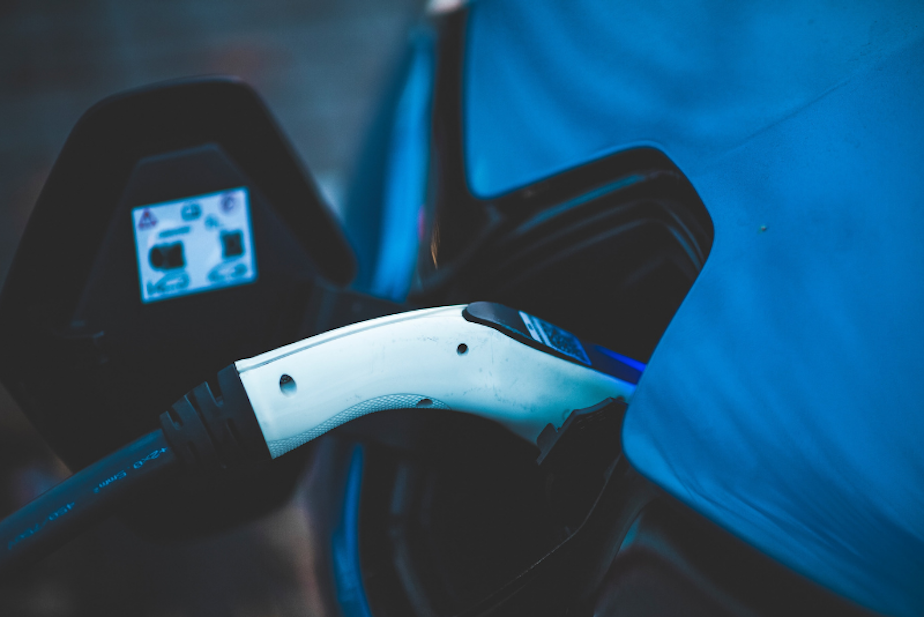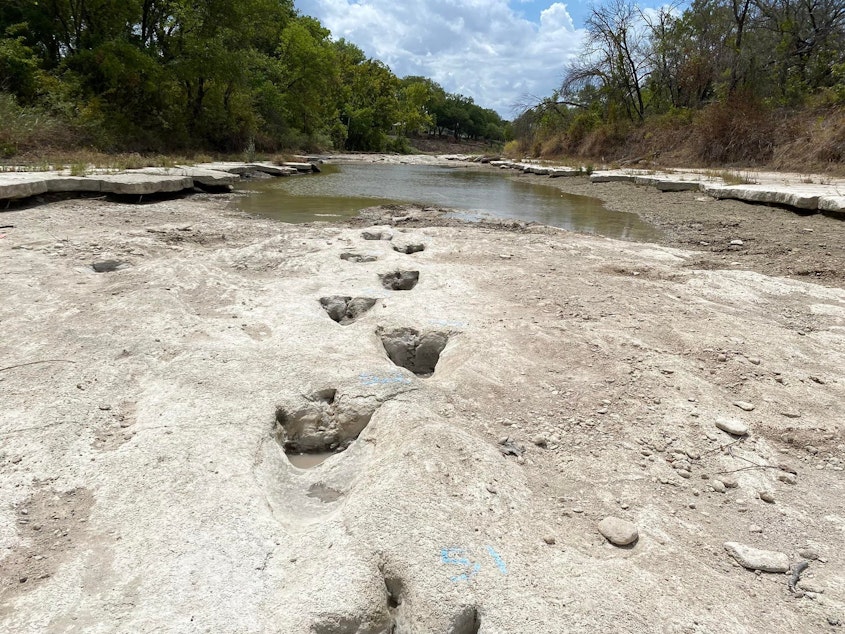Washington is saying 'bye-bye' to gas cars ... eventually: Today So Far

- Washington is on the road to nixing gasoline cars. But the switch to EVs is easier for some, and not so easy for others.
- 135,000 green crabs pulled from Washington waters.
- The risk of monkeypox to the general public and children remains pretty low.
This post originally appeared in KUOW's Today So Far newsletter for August 25, 2022.
Washington is doubling down on its goal to nix the sale of new gas-powered cars in the years ahead, speeding up the state's transition to electric vehicles.
Gov. Jay Inslee made the announcement Wednesday, noting California's move to phase out gas-powered cars by 2035. Washington already has a goal of all-electric car sales by 2030. That goal is non-binding, but Inslee said that Washington intends to "adopt California's (regulations) by the end of this year." This market shift would have a dramatic effect on electric car sales.
As KUOW's John Ryan reports, electric vehicles made up 8% of new-car sales in Washington in 2021 (12% in California, and 4% across the USA). So there will have to be a significant shift in the years ahead if Washington wants to meet its mission of all-electric new car sales.
"We look forward to partnering with California and the Biden Administration to quickly eliminate our country’s #1 source of GHG emissions," Inslee said via Twitter.
At the risk of sounding negative amid some good news, I do have one suggestion/question for Gov. Inslee and the lawmaking brains down in Olympia: Can this California/Biden partnership please make things more affordable?
A lot of folks would gladly step into an electric car. But there's a reason I'm not driving a Tesla right now, or Chevy Bolt for that matter. Heck, if I didn't have to take out a new credit card just to buy an eBike, I'd hop on one of those too. Electric cars have been getting cheaper, but they still cost an average of $10,000 more than their gas counterparts. If you want to install a charger at home, that will also cost you between a few hundred bucks to more than $1,500.
Sure, there's the used-car market, and someone will bring up tax credit this, or extended savings that. But the fact is that a lot of working folks live on a monthly paycheck schedule and don't get that far. Their options are: cheap gas car now; expensive electric car; or our local transit system. Honestly, our local transit system isn't always an option, so that brings us back to the gas car. If we really want to get more EVs on the road and change our traveling culture, we have to get lower-income people over this pricey hurdle.
It should be noted that the goals Washington and California are talking about only deal with new cars. Used gas-powered cars will still be on the road. Just throwing that out there in case there are any enterprising Washingtonians who want to start up an affordable gas-to-electric car conversion company. Read more here.
In other environmental news, Washington crews have pulled an impressive 135,000 green crabs from local waters. The invasive green crabs have been advancing into Washington waters since the late 1990s. They threaten our local crabs, which our local menus rely on, as well as shoreline habitats. They're a problem.
A few solutions have been suggested, such as eating them. Or, one East Coast distillery has proposed making whiskey out of them (yep). But so far, the best option has been to pull as many out of the water as we can. Read more here.
I'm going to say this upfront: The risk of monkeypox to the general public and children remains pretty low. I don't want folks taking this information and funneling it through conspiracies or online misinformation.
An infant in King County was recently hospitalized with monkeypox, and is in stable condition. It's the first such case locally. A 17-year-old in Washington also came down with a case of MPV recently. And according to public health officials in King County, three cis-gender females recently tested positive for MPV. So the virus continues to spread locally; King County has about 310 cases, as of the most recent count. Monkeypox most commonly spreads through prolonged skin-to-skin contact with an infected person, or from handling their clothes, linens, etc. The virus can also spread during sustained face-to-face contact via an infected person's respiratory secretions, although that is less common. Read more here.
AS SEEN ON KUOW

Part of a mural celebrating August Wilson's work in Pittsburgh, Pennsylvania. As KUOW's Mike Davis reports, Wilson spend the latter part of his life in Seattle where he crafted many of his plays and his one-man show. (Flickr)
DID YOU KNOW?
We talk about invasive European green crabs in Washington a lot, but how do you know you're looking at a green crab and not one of our local varieties? For those who don't spend a lot of time on a boat, this might help.
There are a few distinguishing characteristics of the green crab: It's wider in the front than the back; it has relatively long legs compared to its body.
But the thing that I notice most is that the green crab has five jagged points on the front if its shell (called "teeth" or "spines"). These points jut out so you can count them. There should be five. If you have a crab with these five jagged points at the front of the shell, then that's a pretty good indicator. You can see some examples here.
ALSO ON OUR MINDS

Climate change led to dinosaurs' demise. Now, drought reveals more of their tracks
It's not often you find a bright side to drought, but in Texas, the heat and lack of rain have uncovered dinosaur tracks from 113 million years ago. The tracks were unveiled at Dinosaur Valley State Park in Glen Rose, Texas — about an hour's drive from Fort Worth. The park is known for its dinosaur tracks, but these newer ones are usually covered with water from the Paluxy River and aren't visible

